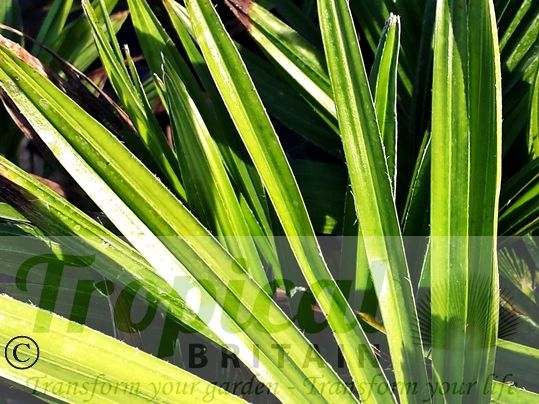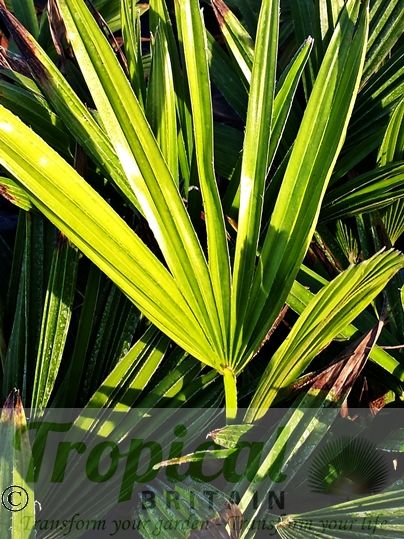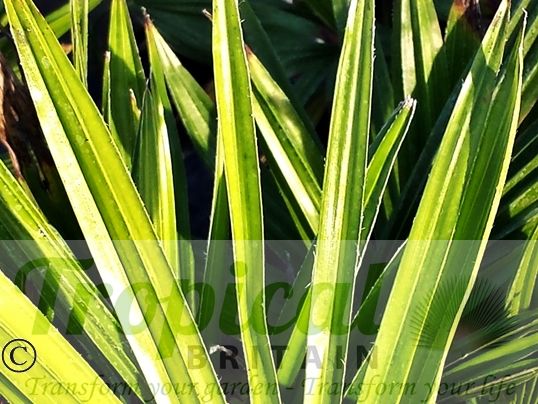Trachycarpus latisectus
Trachycarpus latisectus, the Windermere Palm is a stunning palm with large, nearly-circular leaves and when mature forms a smooth grey trunk. It has a very restricted geographical range in the wild and is found only in an isolated pocket in the Sikkim Himalayas although cultivated specimens are also found in the north of West Bengal. Its status in the wild is under threat although it is now well distributed in cultivation throughout the world. It had been collected both in the nineteenth and early twentieth centuries but had been mistaken for Trachycarpus martianus and its status as a new species went unrecognised. It was not until two specimens were noticed in the grounds of the Windermere Hotel in Darjeeling by Henry Noltie of the Royal Botanic Garden, Edinburgh during the RGBE Sikkim Expedition in 1992 which led to subsequent work in the field by Martin Gibbons and Tobias Spanner that it was finally described as a new species in 1997.
Trachycarpus latisectus has several notable distinguishing features including the large orbicular leaves with wide pleated folds and very broad leaf segments and the development of a white tormentum on the undersurface of the leafsheath and on the petiole and a thin white hair-like tormentum on the folds of the leaves. The seeds are ovoid and grooved similar to Trachycarpus martianus. Old leaves hang down in a skirt below and eventually the leaf-sheathes fall away and leave a bare trunk.
Trachycarpus latisectus is a wonderful palm for moderate British conditions. It appears to be hardy to around -5 to -7C, and should be more suitable for favoured locations with a milder local temperature range. It begins to experience leaf burn around -6C but recovers well in the spring. Grow on in a large pot for a few years to achieve some size before planting in a sheltered aspect in the spring. Fleecing while it is still small is sensible.
Additional Information
| Order | Arecales |
|---|---|
| Family | Arecaceae |
| Sub-Family | Coryphoideae |
| Synonyms | Trachycarpus martianus subsp. latisectus, Trachycarpus sikkimensis |
| Geographical Origin | India: Sikkim, West Bengal |
| Cultivation | Partial shade when small. Sheltered south-facing aspect with some overhanging protection. Rich, moist and well-drained loam-based soil. Feed and water well throughout the growing season |
| Eventual Height | 12 m |
| Eventual Spread | 3 m |
| Hardiness | Hardy to around -5 to -7C when it starts to experience leaf burn. Milder locations. Sheltered aspect in a favourable microclimate. Grow on in a large pot and plant out when it has reached a reasonable size. Fleece when small and during extreme conditions |

Free DELIVERY
ON ALL ORDERS OVER £99THIS OFFER IS VALID ON ALL OUR STORE ITEMS.













